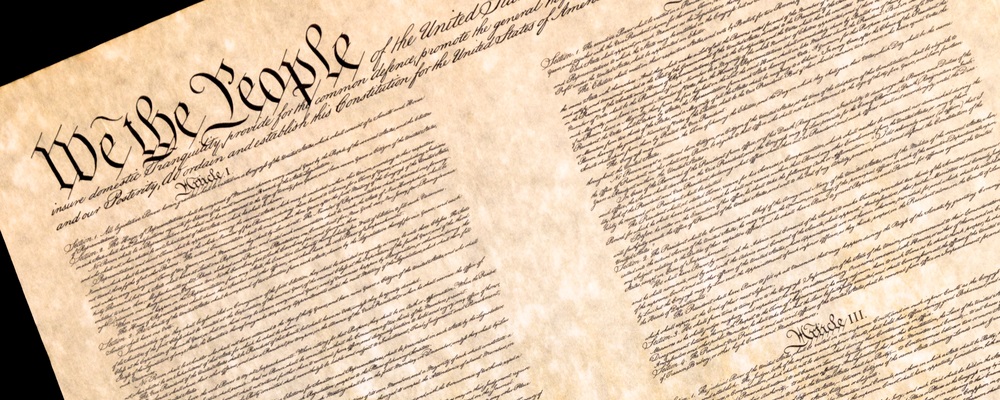Two hundred and thirty years ago, on September 17, 1787, the Constitution of the United States of America was signed at Philadelphia by 39 brave American patriots who changed the course of history — the men known as our Founding Fathers.
Across the world, the document they created has served as a unique example of a balanced system of republican self-government. America now has the world’s oldest federal constitution, and it has been imitated in many countries.
Sadly, many Americans, especially the young, are ignorant of our nation’s history. Few realize the spirited national debate that preceded the adoption of the Constitution, as evidenced in the historic Federalist Papers. The U.S. National Archives has created a teaching and discussion guide on the Constitution that you could profitably discuss with your children and grandchildren.
The Constitution was ratified in each state by special conventions called in the name of “the people,” but only after a national debate on the need for a Bill of Rights, later adopted as the first 10 Amendments. That Bill of Rights affirms our basic rights as citizens and, in theory, limits government power over us, recognizing we the people as the source of all power.
But after twelvescore years, do we Americans still possess and benefit from those hard-won rights?
The Government Does Whatever It Wants
As John Whitehead, author of Renewing the Patriot Act While America Sleeps, says, and I agree, the so-called Patriot Act “ … drove a stake through the heart of the Bill of Rights, violating at least six of the 10 original Amendments.” While we can pretend that the Constitution holds the government accountable, in fact these days the government does whatever it wants.
Presidents and legislators have paid it lip service but ignored it, activist judges have perverted its meaning, but the Constitution was intended to be, and should be, the supreme law of the United States.
This amazing document provides the framework for the organization of the United States government based on a voluntary Union of States. It defines the three main branches of government: the legislative branch, with a bicameral Congress, an executive branch led by the president, and a judicial branch, headed by the Supreme Court, and it describes the powers each branch may exercise.
Importantly, it reserves numerous rights to the individual states and to we the people, thus establishing the federal system of government.
In 2005, the U.S. Congress mandated that federally funded educational institutions (and most are these days) must hold an educational program relating to the U.S. Constitution on or near September 17, the date of the 1787 signing.
This was to offer a review and consideration of the legacy of the Founding Fathers, to understand better the Constitution and to promote good citizenship in younger Americans. (You can do your part by spreading the word in your family and among friends.)
As an example, one of the most important protections in the Bill of Rights is the Fourth Amendment. It prohibits unreasonable official searches, arrests and seizures of property without a specific warrant showing probable cause of criminal activity.
This amendment was designed by the Founders as a response to British writs of assistance, general search warrants with which King George’s colonial agents harassed American colonists for tax collection. John Adams viewed these writs “as the spark in which originated the American Revolution.”
Perhaps the U.S. Justice Department, the FBI and the National Security Agency should be forced to observe Constitution Day by reading that once-sacred document and following its clear dictates.
Or maybe the U.S. Congress should repeal the Fourth Amendment and send it to the states, allowing general writs of assistance to be issued by the latest king in the White House.
Sadly, I wonder how many Americans would even care. Do you?
Yours for liberty,

Bob Bauman, JD
Chairman, Freedom Alliance
Editor’s Note: Never before have people had to live according to so many complex statutes, laws and regulations, most of which are completely useless. But after practicing law for over 40 years, Bob Bauman is convinced beyond a shadow of a doubt that you can have a life full of personal freedom and abundance, simply by learning the latest strategies contained in his best-selling Passport Book. To order your copy today, click here.









